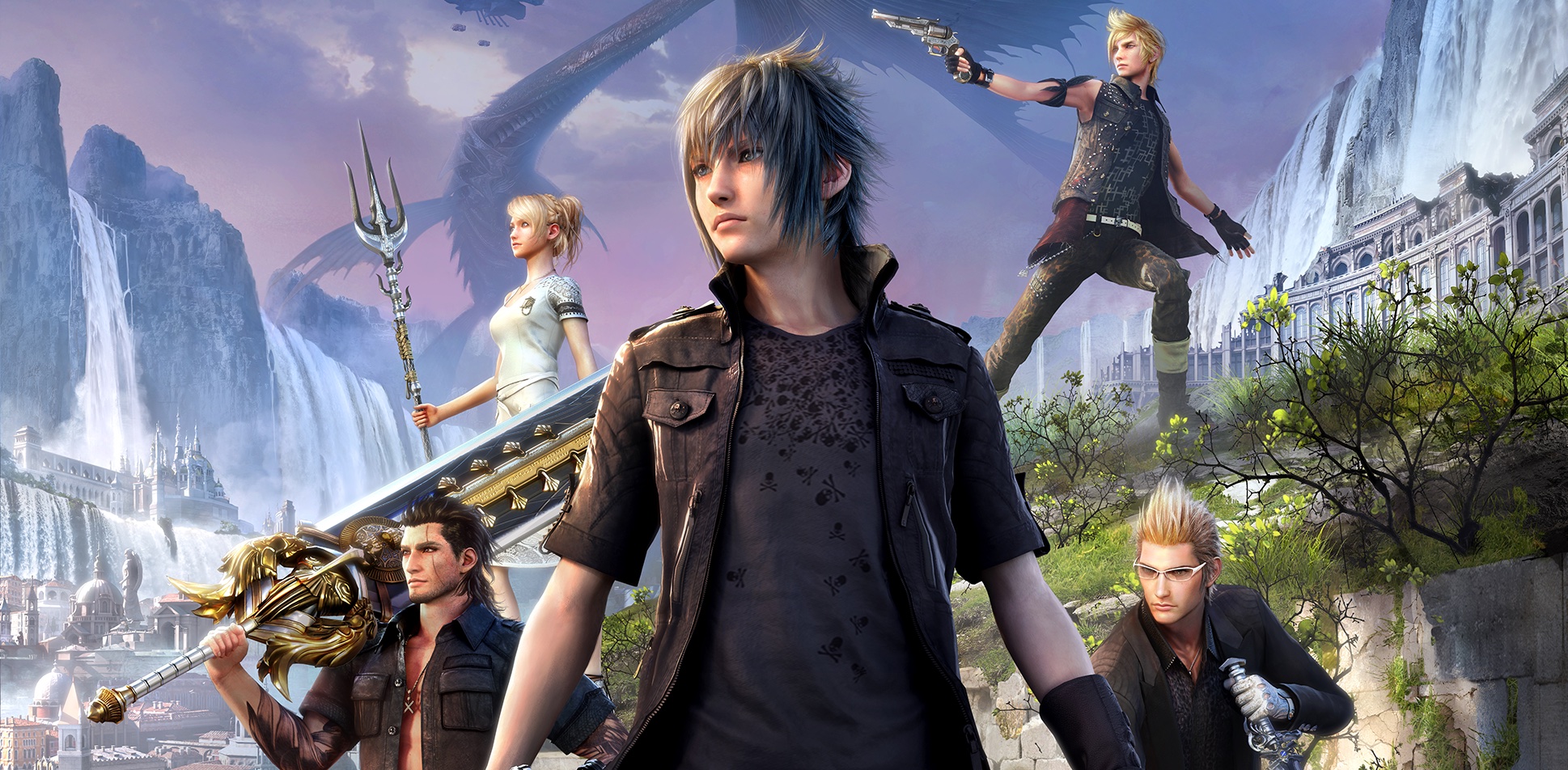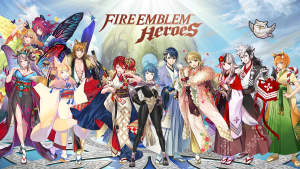The Origins of Final Fantasy
Final Fantasy, a beloved and iconic franchise in the world of gaming, had humble beginnings. It all started in 1987 when a small game development company called Square (now known as Square Enix) was on the brink of bankruptcy. In a last-ditch effort, they decided to create a role-playing game (RPG) that they hoped would capture the hearts of gamers. Little did they know that this game would become a groundbreaking phenomenon.
The name “Final Fantasy” itself came from the fact that Square’s founder, Hironobu Sakaguchi, believed it would be his final attempt at creating a successful game before leaving the industry. Fortunately, the game was a massive success in Japan, giving Square the financial boost it desperately needed.
What made Final Fantasy stand out from other RPGs at the time was its unique blend of compelling storytelling, immersive worlds, and innovative gameplay mechanics. It introduced the concept of a party system, where players could control a group of characters with different abilities, allowing for deeper strategic gameplay.
With each new installment, Final Fantasy pushed the boundaries of what RPGs could achieve. From the iconic character designs by Yoshitaka Amano to the breathtaking musical scores composed by Nobuo Uematsu, every aspect of the game captivated players and kept them coming back for more.
Over the years, Final Fantasy has evolved and continually reinvented itself while maintaining its core essence. It has ventured into various platforms, from consoles to handheld devices, and even into the online gaming world with the immensely popular Final Fantasy XIV.
With the success of the original game, Square went on to create numerous sequels and spin-offs, expanding the Final Fantasy universe with each new release. These include notable titles such as Final Fantasy VII, which achieved critical acclaim and became a commercial success in its own right.
Final Fantasy’s influence extends beyond the gaming industry. It has inspired countless works of art, music, and even academic discussions. The series has become a staple of pop culture, with crossovers in movies, TV shows, and even sports events.
The Gameplay Mechanics of Final Fantasy
At the heart of the Final Fantasy franchise lies its captivating gameplay mechanics, which have evolved and adapted over the years to provide players with unforgettable gaming experiences.
One of the defining features of the series is its turn-based combat system. Players take turns to input commands for their characters, strategizing their actions against enemies. This system allows for a more methodical and strategic approach to battles, requiring players to consider each move carefully.
As the series progressed, the combat mechanics became more dynamic and fluid. Active Time Battle (ATB) was introduced in Final Fantasy IV, where each character had an individual timer that determined when they could execute actions. This added a sense of urgency and real-time decision-making to the battles, keeping players engaged and on their toes.
Final Fantasy games also feature a deep character progression system. Players can customize the abilities and attributes of their characters through a variety of methods, such as leveling up, learning new skills, equipping different weapons and armor, and utilizing a wide range of magical spells. This level of customization allows players to create a unique party that suits their playstyle and enhances the overall role-playing experience.
Exploration is another key aspect of gameplay in Final Fantasy. Players traverse vast and visually stunning open worlds or navigate through intricate dungeons, uncovering secrets, treasures, and engaging in side quests along the way. The immersive environments and intricate level designs encourage players to explore every nook and cranny, rewarding them with valuable items and unforgettable experiences.
Final Fantasy games also often incorporate mini-games and side activities that provide a break from the main storyline. These diversions range from card games and chocobo racing to fishing and even managing virtual cafes. These mini-games not only offer a fun distraction but also deepen the sense of immersion and provide additional challenges and rewards.
Collaborative gameplay has also become a prominent feature in recent entries of the series. Games like Final Fantasy Crystal Chronicles and Final Fantasy XIV allow players to team up with friends or other players online to tackle challenging quests and boss battles. This cooperative gameplay fosters a sense of camaraderie and adds a social element to the Final Fantasy experience.
The World of Final Fantasy
One of the most captivating aspects of the Final Fantasy series is the intricately crafted worlds in which the games take place. Each installment offers a unique and immersive setting that transports players into a rich and diverse universe.
From the lush and magical realms of Gaia in Final Fantasy IX to the futuristic and technologically advanced world of Spira in Final Fantasy X, the worlds of Final Fantasy are known for their stunning visuals, imaginative landscapes, and rich lore.
These fantastical worlds are often brought to life through breathtakingly detailed graphics and artistic design. From the bustling cityscapes and towering castles to the tranquil forests and mystical ruins, every aspect of the environments is meticulously crafted to create an immersive experience for players.
Moreover, Final Fantasy worlds are populated with a vast array of diverse and intriguing characters, not only from the main cast of heroes but also from the plethora of NPCs (non-playable characters) that players encounter throughout their journey. These characters add depth and a sense of realism to the game world, with their unique stories, personalities, and interactions.
The world-building in Final Fantasy goes beyond just the physical landscapes and characters. The series is known for its intricate mythologies and lore that intricately weave together the history and cultures of the different regions. Players discover ancient prophecies, uncover forgotten civilizations, and delve into the conflicts between nations, creating a tapestry of storytelling that fuels the player’s curiosity and engagement.
Each world in Final Fantasy exists as a living, breathing entity, with its own set of rules, cultures, and histories. Whether it’s the floating city of Midgar in Final Fantasy VII or the time-forgotten realm of Ivalice in Final Fantasy Tactics, the worlds of Final Fantasy invite players to immerse themselves in an epic adventure where every corner holds the potential for discovery and wonder.
Through its captivating world-building, Final Fantasy has created a legacy of unforgettable settings that have captivated players for decades. From the mysterious depths of the ocean to the far reaches of outer space, these worlds continue to inspire and ignite the imaginations of gamers around the globe.
The Characters of Final Fantasy
The characters of Final Fantasy are an integral part of what makes the franchise so beloved and memorable. From courageous heroes to complex villains, each character is meticulously crafted to engage players emotionally and drive the narrative forward.
One of the defining features of Final Fantasy is its diverse and relatable ensemble cast. These characters, with their unique personalities, strengths, and flaws, form deep connections with players. Whether it’s Cloud Strife’s stoic determination in Final Fantasy VII or Tidus’ growth and self-discovery in Final Fantasy X, the development of these characters allows players to invest emotionally in their journeys.
Notably, Final Fantasy has introduced many iconic female characters who defy traditional gender roles and offer a refreshing representation of strong, independent women. From the unforgettable and powerful mage Terra Branford in Final Fantasy VI to the fearless summoner Yuna in Final Fantasy X, these female characters have become inspirations to players around the world.
Alongside the main characters, Final Fantasy games also feature a wide array of memorable supporting characters and NPCs who play crucial roles in the overarching story. These characters add depth and nuance to the game world, be it the wise and enigmatic Auron in Final Fantasy X or the eccentric and lovable Cid, who often appears as a recurring character in various iterations of the franchise.
Additionally, Final Fantasy has given birth to numerous memorable villains, each with their own motivations and tragic backstories. One cannot forget the complex and enigmatic Sephiroth in Final Fantasy VII, whose descent into darkness captivated players and solidified his status as one of the most memorable antagonists in gaming history.
Final Fantasy has also embraced crossover events and collaborations, bringing characters from different games together. A notable example is Dissidia Final Fantasy, a fighting game that features characters from multiple Final Fantasy titles, allowing players to engage in epic battles between their favorite heroes and villains.
Through their unique personalities and incredible character arcs, the characters of Final Fantasy have left a lasting impact on gamers worldwide. They inspire, resonate, and invite players to embark on unforgettable journeys filled with hope, love, sacrifice, and the power of friendship.
The Storyline of Final Fantasy
The storyline of Final Fantasy is at the core of what makes each game in the series an immersive and captivating experience. Each installment weaves a tale of epic proportions, filled with compelling characters, intricate plot twists, and thought-provoking themes.
While each Final Fantasy game features a unique story, there are thematic elements that run through the series as a whole. Many games explore the timeless struggle between good and evil, with protagonists often facing overwhelming odds as they fight to save the world from impending destruction. These stories often delve into complex moral dilemmas and highlight the power of courage, friendship, and sacrifice.
Another recurring theme in Final Fantasy is the exploration of the human condition. The games often delve into the depths of human emotions, exploring topics such as love, loss, identity, and redemption. Whether it’s the tragic love story between Squall and Rinoa in Final Fantasy VIII or the inner conflicts faced by characters like Cecil in Final Fantasy IV, the narratives of Final Fantasy resonate with players on an emotional level.
The narrative structure of Final Fantasy games is often multi-layered, with intricate subplots and character arcs that intertwine with the overarching storyline. The games expertly balance moments of intense action and breathtaking spectacle with quieter, introspective moments that allow players to connect with the characters and explore their inner struggles.
The depth and complexity of the storytelling are enhanced by the high caliber of writing and localization. The dialogue and character interactions are crafted with care, providing players with memorable quotes, engaging banter, and meaningful conversations that bring the world and its inhabitants to life.
Furthermore, Final Fantasy is renowned for its ability to create memorable moments and shocking plot twists that leave players on the edge of their seats. From Aerith’s tragic fate in Final Fantasy VII to the mind-bending revelations in Final Fantasy X, these moments not only leave a lasting impact but also challenge players’ assumptions and keep them engaged in the unfolding narrative.
With each installment, Final Fantasy pushes the boundaries of storytelling in gaming, creating immersive and emotionally-driven narratives that resonate with players long after the credits roll. Whether it’s a tale of personal growth and self-discovery or an epic struggle against overwhelming odds, the storylines of Final Fantasy have established the franchise as a leader in the realm of video game narratives.
The Music of Final Fantasy
The music of Final Fantasy has become synonymous with the series, elevating the gaming experience and leaving a lasting impression on players. Composed by the legendary Nobuo Uematsu and later by other talented composers, the scores of Final Fantasy have become iconic and beloved by fans worldwide.
From the hauntingly beautiful melodies to the epic orchestral arrangements, the music of Final Fantasy sets the tone and atmosphere for each game. It enhances the storytelling, evokes emotions, and immerses players in the fantastical worlds of the series.
Nobuo Uematsu’s compositions have become legendary within the gaming community. Pieces like the iconic “Opening Theme” of Final Fantasy VII or the melancholic “To Zanarkand” from Final Fantasy X have become instantly recognizable and celebrated for their timeless beauty.
The music of Final Fantasy covers a wide range of genres, from epic orchestral arrangements to catchy and upbeat tunes. Each game’s soundtrack is meticulously designed to reflect the setting, story, and emotional arcs of the characters. Whether it’s the grandiose battle themes that accompany intense boss fights or the soothing melodies that play during moments of reflection, the music enhances the player’s emotional connection to the game.
What sets the music of Final Fantasy apart is its ability to convey emotions and tell stories without the need for words. The melodies and harmonies speak to players on a deep level, allowing them to experience joy, sorrow, triumph, and everything in between. The compositions lend a powerful voice to the journeys of the characters, often becoming just as memorable as the characters themselves.
Over the years, Final Fantasy has embraced technological advancements, allowing for more complex and layered compositions. From the synthesized soundtracks of the early games to the orchestral arrangements of later entries, the music has evolved while retaining its magical essence.
Final Fantasy’s music has transcended the realm of video games, with countless concerts and dedicated orchestral performances around the world. The music has become a staple of gaming culture and has garnered a dedicated following of fans who appreciate its brilliance and artistry.
Final Fantasy has left an indelible mark on the gaming industry, and its music is an integral part of its legacy. The melodies of Final Fantasy continue to inspire and captivate, reminding us of the power of music to transport us to extraordinary worlds and evoke deep emotions.
Final Fantasy Spin-Offs and Sequels
The success of the Final Fantasy franchise has spawned a multitude of spin-offs and sequels that expand and explore the rich worlds and characters introduced in the main games. These spin-offs and sequels have allowed fans to delve deeper into the Final Fantasy universe and experience new adventures.
One of the most notable spin-off series is the “Final Fantasy Tactics” franchise, which takes a departure from the traditional RPG format and introduces turn-based strategy gameplay. The series has garnered a dedicated fan base for its engrossing storytelling, complex tactical battles, and deep character customization.
Another spin-off that gained popularity is the “Final Fantasy Crystal Chronicles” series, which focuses on cooperative multiplayer gameplay. Players team up with friends to navigate through dungeons, solve puzzles, and defeat powerful enemies. The series emphasizes teamwork and cooperation, providing a unique and engaging experience.
Final Fantasy has also ventured into other genres with spin-offs like “Final Fantasy Dissidia,” a fighting game that features characters from past Final Fantasy games. It offers intense battles and a unique blend of action and strategy, satisfying both fans of the franchise and fans of the fighting game genre.
Sequels have also been a part of the Final Fantasy legacy, allowing players to revisit beloved characters and continue their stories. Notable examples include “Final Fantasy X-2,” which follows the adventures of Yuna after the events of Final Fantasy X, and “Final Fantasy XIII-2,” which builds upon the events of Final Fantasy XIII and introduces new characters and storylines.
Additionally, the MMO (massively multiplayer online) spin-offs, “Final Fantasy XI” and “Final Fantasy XIV,” have provided players with the opportunity to explore the Final Fantasy universe in a persistent online world. These games have cultivated supportive and vibrant communities, offering players countless hours of cooperative gameplay, challenging raids, and engaging storylines.
Final Fantasy spin-offs and sequels not only cater to the diverse interests of the fans but also showcase the versatility and creativity of the franchise. They provide an avenue for experimentation and innovation while maintaining the core essence and spirit of Final Fantasy.
These spin-offs and sequels serve as a testament to the enduring popularity and longevity of the franchise, as they continue to captivate old and new fans alike. Whether it’s engaging in strategic battles, exploring cooperative multiplayer experiences, or delving deeper into the stories of beloved characters, these spin-offs and sequels offer something for every Final Fantasy enthusiast.
The Impact of Final Fantasy on Gaming Culture
Final Fantasy has had a profound and far-reaching impact on gaming culture since its inception. As one of the longest-running and most successful RPG franchises, Final Fantasy has left an indelible mark on the gaming industry, shaping the way we perceive and experience video games.
One of the significant contributions of Final Fantasy is its role in popularizing and advancing the genre of role-playing games. The series set the bar for storytelling, character development, and gameplay mechanics, inspiring countless developers to push the boundaries of what RPGs could achieve. Many modern RPGs owe their success and inspiration to the groundbreaking innovations of Final Fantasy.
Final Fantasy has also been instrumental in introducing cinematic storytelling to gaming. With its engaging narratives, memorable characters, and stunning visuals, Final Fantasy bridged the gap between movies and video games. The franchise showcased the potential of interactive storytelling, captivating players with its cinematic cutscenes, emotional moments, and grandiose set pieces.
The music of Final Fantasy has also had a significant impact on gaming culture. Composed by Nobuo Uematsu and other talented musicians, the melodies of Final Fantasy have become timeless classics in the gaming world. The beautiful and epic compositions have not only enhanced the gaming experience but have also fostered a greater appreciation for video game music as a standalone art form.
Final Fantasy’s influence extends beyond the gaming sphere. The franchise has inspired a multitude of fan creations, including fan art, cosplay, and fan fiction, showcasing the passionate dedication of the fan community. Moreover, the characters and themes of Final Fantasy have permeated popular culture, with references and nods to the franchise appearing in movies, TV shows, and other forms of media.
Another significant impact of Final Fantasy is its contribution to the globalization of gaming. The franchise’s worldwide success and appeal have helped popularize Japanese RPGs among a broader audience. It has introduced players from different cultures to the rich lore and storytelling traditions of Japan, fostering a greater appreciation for global gaming experiences.
Furthermore, Final Fantasy has had a lasting impact on the way players perceive and engage with video games. It has shown that games can be more than just a form of entertainment, but also a medium for thought-provoking narratives, emotional experiences, and artistic expression. The franchise has pushed the boundaries of what gaming can be, inspiring developers to create immersive and meaningful experiences.
Final Fantasy Beyond Video Games
While Final Fantasy is primarily known for its video game series, its influence extends beyond the realm of gaming. The franchise has expanded into various forms of media, creating a multi-dimensional universe that captivates fans through alternative storytelling and immersive experiences.
One notable medium that Final Fantasy has ventured into is anime. The franchise has inspired several animated adaptations, bringing the characters and stories to life in a new visual format. These anime series and films provide fans with an additional perspective on the narratives of Final Fantasy, allowing them to delve deeper into the beloved worlds and characters.
Another avenue through which Final Fantasy has expanded is through novels and manga. Various novels have been written based on the Final Fantasy universe, exploring untold stories and further expanding the lore. Additionally, manga adaptations have allowed fans to experience the Final Fantasy narratives in a different art style, providing a visually captivating interpretation of the iconic characters and settings.
Final Fantasy has also made its mark in the realm of merchandise and collectibles. The franchise has spawned a wide range of merchandise, such as action figures, clothing, and accessories. Fans can proudly display their love for Final Fantasy through these items, further immersing themselves in the world of the franchise.
Furthermore, Final Fantasy has made appearances in other forms of entertainment, including theme parks and live performances. The popular theme park Universal Studios Japan features attractions inspired by Final Fantasy, allowing visitors to step into the extraordinary worlds and experience the magic firsthand. Additionally, concerts dedicated to the music of Final Fantasy have been held worldwide, showcasing the orchestral renditions of the beloved soundtracks.
The impact of Final Fantasy has even extended to the realm of education and academia. The game’s complex narratives, themes, and character development have become subjects of study and analysis. Scholars have explored the philosophical, sociological, and psychological aspects of Final Fantasy, demonstrating the depth and complexity of the franchise beyond its entertaining qualities.
Through these various adaptations and forms of media, Final Fantasy has created a multi-faceted universe that extends beyond the screen. It allows fans to engage with the franchise in new and exciting ways, immersing themselves in alternate storytelling mediums and finding new dimensions to explore.
Overall, Final Fantasy’s expansion into different forms of media showcases the enduring appeal and versatility of the franchise. It continues to captivate fans and transcend the boundaries of traditional video games, creating an expansive universe that fans can explore and experience in unique and diverse ways.
Final Fantasy’s Future
As Final Fantasy continues to captivate gamers worldwide, the future of the franchise holds immense potential for exciting new experiences and innovative gameplay. With each new installment, Final Fantasy evolves and adapts to the changing landscape of the gaming industry, while remaining true to its core essence.
One aspect of Final Fantasy’s future lies in the advancements in technology. As technology continues to improve, the visuals, audio, and gameplay mechanics of Final Fantasy games will reach new heights of realism and immersion. Players can expect even more breathtaking graphics, seamless open worlds, and immersive virtual reality experiences that will transport them further into the fantastical realms of the franchise.
The future of Final Fantasy also holds the promise of pushing the boundaries of storytelling. With each new installment, players can anticipate captivating narratives that explore thought-provoking themes and evolve the franchise’s traditions. The stories will delve deeper into the complexities of human emotions and challenge players with moral dilemmas, creating even more immersive and thought-provoking experiences.
Collaboration and innovation will continue to shape the future of Final Fantasy. The franchise has already dabbled in partnerships with other popular franchises, such as the crossover event featuring characters from the massively popular MMORPG, Final Fantasy XIV, and the critically acclaimed NieR: Automata. Fans can expect more exciting collaborations that will bring together the worlds of Final Fantasy and other beloved franchises, offering unique crossovers and shared experiences.
Furthermore, Final Fantasy’s future lies in the expansion into new platforms and technologies. With the rise of mobile gaming, Final Fantasy games have made a successful transition to smartphones and tablets, allowing players to experience their favorite franchises on the go. The future may bring even more accessibility and innovative gameplay experiences as Final Fantasy explores emerging platforms and technologies.
Lastly, Final Fantasy’s future lies in its dedicated and passionate fanbase. The franchise has enjoyed immense support and loyalty from fans around the world, and their continued enthusiasm will shape the future of the series. Developers will listen to feedback and engage with the community, ensuring that the future iterations of Final Fantasy are crafted with the fans in mind, keeping the franchise fresh and relevant for years to come.
As Final Fantasy continues to evolve, the possibilities for its future are endless. Whether it’s through technological advancements, innovative storytelling, exciting collaborations, or expanding into new platforms, Final Fantasy will undoubtedly continue to captivate and inspire gamers for generations to come.




